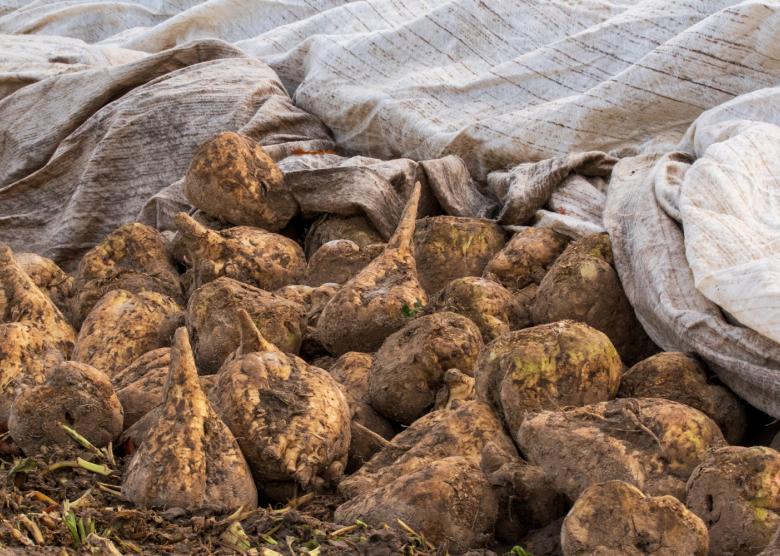Beet Sugar vs Cane: Which Sugar Is the Right Choice for Baking?
Beet Sugar vs Cane: Which Sugar Is the Right Choice for Baking?
Blog Article
The Fantastic Debate: Beetroot Sugar Vs Walking Cane and Their Effect On Health And Wellness
The recurring discussion bordering beet sugar and cane sugar elevates essential inquiries regarding their respective health effects and broader implications for customer choices. While both sweeteners share a similar chemical make-up, their beginnings and handling approaches might influence not just nourishment however also ecological sustainability. As health-conscious individuals consider the advantages of each option, the ramifications of chemical direct exposure and agricultural practices enter into focus. This discussion welcomes us to think about not simply the sweetness we select, but the far-ranging results of those choices on our wellness and the world. What might this indicate for future intake patterns?
Overview of Sugar Sources
Sugar, an extensively taken in sweetener, largely originates from 2 main sources: sugar beets and sugar walking stick. Sugar walking stick grows in subtropical and exotic climates, with major manufacturers consisting of Brazil, India, and China.
On the other hand, sugar beetroots are mainly expanded in temperate regions, with considerable manufacturing in nations such as the USA, France, and Germany. The beetroots are harvested from the ground, sliced, and based on a process that transforms the removed juice into granulated sugar. While both sugar resources eventually generate sucrose, their farming techniques, refining techniques, and geographical distributions vary considerably.
These distinctions can affect not only the ecological impact of sugar manufacturing however additionally the economic elements of sugar pricing and trade. Comprehending the beginnings of these sugar is vital for policymakers and customers alike, as it lays the structure for notified conversations about their health ramifications and sustainability.
Nutritional Comparison
When analyzing the dietary accounts of beetroot sugar and walking cane sugar, both sources share a comparable composition as they largely are composed of sucrose. Sucrose is a disaccharide, composed of glucose and fructose, and is accountable for the sweetness connected with both sugars. The refining procedures for both beet and walking stick sugar yield items that are mostly pure sucrose, with very little traces of vitamins, minerals, or various other nutrients.
In regards to calorie web content, both beetroot and walking cane sugars supply around 4 calories per gram. Neither type of sugar provides considerable nutritional benefits beyond power stipulation, as they lack crucial vitamins or minerals. The presence of trace components, such as potassium, magnesium, and calcium, can differ a little between the two, mainly due to the agricultural practices and soil conditions in which they are expanded.
Additionally, the glycemic index worths of beet sugar and walking stick sugar are similar, indicating similar effects on blood sugar levels. Generally, from a nutritional perspective, beetroot and walking stick sugars are functionally equal, contributing mainly to caloric intake without using significant health benefits over each other.
Wellness Ramifications
The health ramifications of consuming beetroot sugar and walking cane sugar warrant cautious factor to consider, particularly provided the increasing frequency of sugar-related health concerns. Both kinds of sugar add comparable caloric worths and can lead to enhanced threats of obesity, type 2 diabetes mellitus, and cardio conditions when consumed over. The body metabolizes both sugars right into glucose, which can cause spikes in blood sugar levels, causing insulin resistance with time.
While there is ongoing discussion relating to the glycemic index of these sugars, studies recommend that both can negatively affect metabolic health if eaten in huge quantities. beet sugar vs cane. In addition, the potential existence of pollutants in beetroot sugar, such as chemicals from conventional farming techniques, raises additional health worries. Alternatively, cane sugar, specifically when minimally refined, might provide a somewhat extra desirable account because of its all-natural state
Moreover, the usage of added sugars, regardless of the source, is linked to adverse wellness outcomes, including dental issues and fatty liver condition. Consequently, moderation is important, and individuals must bear in mind their complete sugar intake from all resources, ultimately focusing on entire foods over added sugars for optimum wellness outcomes.
Environmental Influence
Understanding the health and wellness implications of beetroot and walking stick sugar likewise results in an examination of their ecological influence, which can substantially influence agricultural sustainability and eco-friendly balance. Both sugar sources have unique environmental impacts, shaped by their growing techniques and geographical requirements.

In comparison, beetroot sugar is usually expanded in temperate climates and commonly involves varied plant turnings. This technique can boost dirt wellness and minimize dependence on chemical inputs. Extensive beetroot farming can also lead to nutrient depletion and parasite stress if not handled sustainably.
Both sugar types present difficulties and possibilities for environmental stewardship. Promoting lasting farming practices and responsible sourcing can mitigate their effects, making certain that sugar production lines up with environmental conservation and long-lasting food safety.
Consumer Preferences
Amidst expanding awareness of health and ecological concerns, consumer choices for sugar kinds are progressively affected by assumptions of wellness benefits, sustainability, and honest sourcing. Beet sugar and cane sugar each present unique characteristics that attract different consumer demographics.
Health-conscious Website consumers often look at the nutritional click to read more accounts of these sugars, seeking alternatives regarded as less processed or even more natural. Walking stick sugar, typically considered as the traditional sugar, is often favored for its regarded purity and simpleness. In comparison, beetroot sugar, which is regularly derived from genetically changed plants, faces skepticism among those concerned regarding GMOs.
Sustainability is another significant element influencing customer options. As recognition of agricultural techniques expands, numerous consumers select items that straighten with eco-friendly farming approaches. Walking stick sugar production, specifically when sourced from lasting farms, can appeal to eco-conscious purchasers.
Moral sourcing plays an essential duty too, with customers progressively preferring products that sustain fair labor techniques. Certifications such as Fair Profession can boost the appearance of walking stick sugar out there. Ultimately, customer choices are shaped by a complex interaction of wellness, environmental, and ethical considerations, driving demand for both beetroot and walking stick sugars in diverse markets.
Verdict
To conclude, the argument in between beetroot sugar and cane sugar includes numerous variables, consisting of dietary profiles, health and wellness effects, and ecological consequences. beet sugar vs cane. While both sugars article source mainly are composed of sucrose and display similar calorie web content, problems concerning pesticide use in beetroot sugar and the environmental influence of walking stick sugar monoculture warrant careful consideration. As consumers significantly focus on sustainability and health, educated options concerning sugar consumption come to be important in promoting general wellness and ecological stewardship

Report this page